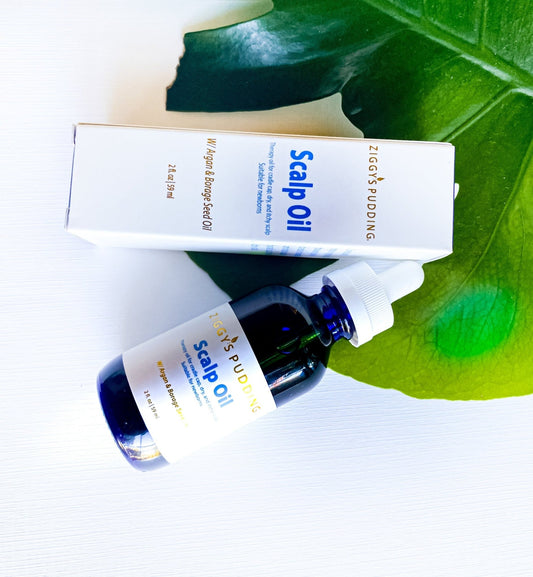
How to take care of your skin naturally in the winter
Do you know that your skin has to be treated differently in the winter than in other seasons? Winter is the harshest season of the year. It is cold and dry, and the air is less humid. Cold air can wreak havoc on our skin.
Other seasons are a lot more forgiving, but winter plays no games. Just like you change your clothes in the winter, you have to change your winter skincare products and your skincare routine.
Winter skincare needs to focus on preserving the skin barrier and preventing dry skin.
To preserve the skin barrier we need to :
- Choose the right skincare products
- Cleanse our skin properly
- Eating a proper diet
- Simplify our skincare routine
The skin barrier (stratum corneum) is the outermost and topmost layer of the skin, comprising of dead skin cells, ceramides, fatty acids, and cholesterol. Preserving the skin barrier is vital in your winter skincare routine because your skin barrier is the first line of defense against pathogens, irritants, chemicals, and more.
How do you preserve the skin barrier?
- Choose the right skincare products

When choosing products that will preserve the skin barrier, you want to focus on products that contain occlusive ingredients. These ingredients leave a film on the skin to protect it from irritation, bacteria, and the environment. Good occlusive ingredients protect the skin, repair it, and have antioxidant, antibacterial, and anti-inflammatory properties. Our favorite occlusive ingredients are shea butter, cocoa butter, and cupuacu butter.
Finding skincare products that contain humectant ingredients, like hyaluronic acid, vegetable glycerin, and aloe Vera are also beneficial in preserving the skin barrier. Since the winter is less humid, the moisture level in the air is lower, leading to increased dry and irritated skin. Humectants are a class of water-loving ingredients that can draw moisture from the environment into the skin.
Ceramides are fatty substances located in the stratum corneum layer of your skin. The skin barrier is composed of approximately 50% of these skin lipids. Ceramides are part of the glue or matrix that holds the skin cells together. Ceramides are the defense between you and the outside world. The function of these lipids are to protect you by keeping irritants, and pathogens out of the body. Harsh weather, sun damage, and age lowers the number of ceramides we have in our skin.
Healthy ceramide levels are necessary to preserve the skin barrier, especially in the winter. Now, we have seen the creation of synthetic ceramides to replenish what we are losing in our skin, but did you know that ceramides can be found in natural oils too?
We can find ceramides in jojoba oil, oat oil, sunflower oil, hemp oil, and safflower oil, to name a few. We can also find ceramides in food such as soybean, brown rice, and other food sources. Products with ceramides, preferably natural ceramides, are a great addition to your winter skincare routine.
- Cleanse your skin properly

How you take care of your skin, as in cleansing it, can also impair the skin barrier. In preserving the skin barrier, it is best to limit or completely stop the use of drying agents like astringents, clays, certain detergents(body washes), and harsh soaps. Exfoliants like scrubs can be great but should be limited in the winter months. Super hot showers dry out the skin leaving it prone to cracking and irritation and should be avoided in the winter. Excessive baths, showers, and scrubbing can adversely affect the skin barrier, so being gentle is ideal. Limiting your bath and shower time can be beneficial in preserving your skin barrier in the winter.
- Eating a proper diet

A not so talked about method to preserve your skin barrier is through your diet. We often focus on what we put on our skin but neglect to think about what we put into our bodies. Nutrition plays a vital role in the health of our bodies and skin. Our skin consists of proteins like keratin and collagen. Eating foods that supply our body with adequate protein and amino acids is beneficial to the health of our skin during the winter.
Not only should we focus on a well-balanced, whole-food, plant-based diet, but we should also pay attention to foods that supply our body with essential fatty acids. Essential fatty acids are compounds that are vital to our health, and we do not produce them ourselves. So we have to get them from our food sources. These compounds are known for their potent anti-inflammatory and reparative properties in our bodies and skin.
- Simplify your skincare routine
Will switching to a more simplified skincare routine also preserve our skin barrier?
The answer is yes. We often see these multi-step skincare routines consisting of chemical exfoliants, cleansers, toners, creams, oils, overnight masks, and so on. Some of us have lengthy nighttime routines and longer and more involved daytime skincare routines. But some of those products you are using, such as your toners can have drying ingredients, some may irritate, and some sit on your skin, causing redness and impaired skin. So keeping it simple in the winter with a few products that preserve the skin barrier is crucial.
How do you prevent dry skin in the winter?
- Increase the humidity in your home
- Stop over washing and filter your water
- Moisturize
- Avoid dehydration
With preventing dry skin this winter, there are some things you can do to help.
Cold air, central heating, and low humidity, coupled with dehydration contribute to dry skin in the winter. And if you are already prone to dry skin conditions like eczema, you must be diligent with your skincare and skincare routine this winter to prevent dry skin.
- Increase the humidity in your home
When it’s cold and we have central heating going to keep us warm, it sucks the humidity out of the air, making the air dry. Ever wake up with a dry throat and parched-looking skin, that’s why. The key is to increase the humidity in your home. You can do this by investing in a humidifier. Running the humidifier at night can increase the moisture in your home, and skin. But you have to maintain a fine balance with increasing humidity because too much humidity can impair the skin barrier.

You can also increase the humidity by boiling a pot of water until the steam is released, having a plant collection, and running the shower for a few minutes allowing the steam to accumulate in the bathroom, making that area more humid.
- Stop over washing and filter your water
Taking long showers with harsh soaps and detergents can strip the skin of its natural oils leading to dry skin. “A hot daily shower can damage your skin… Over washing causes 'defatting' of the skin, getting rid of the natural body oils we produce to protect the skin cells. This can cause actual damage making them more permeable to bacteria or viruses, precipitating itchy skin, dryness, flakiness, and worsening conditions like eczema,” warns Associate Professor Stephen Shumack, President of the Australasian College of Dermatologists.
If you are not very active, then it may be ok to skip the daily scrub and choose to clean the dirtiest parts, underarms, and private parts instead. Babies definitely should not be bathed daily in the winter. You can do a sponge bath with them and cleanse the most soiled parts of the skin, then give them a full bath, once or twice a week, based on their activity levels. If you prefer the daily shower, like me, then go for the short and sweet three-minute shower with lukewarm water.

Speaking of baths, and showers, the water we bathe in is not the purest. While we do not have access to a water spring with the purest water to bathe in, we have access to running water. The problem is, our water contains chemicals like chlorine, chloramine, fluoride, heavy metals, pesticides, and more. These things are irritants and tend to dry and irritate the skin. Investing in a shower filter or whole house filtration system can help in reducing the amount of chlorine, pesticides, heavy metals, VOCs, and some fluoride in the water. When you shower with less irritating chemicals in the water, your skin feels softer, has less irritation, and your experience less dry skin.
When my son "Ziggy," was experiencing eczema, using a shower filter was crucial in helping to reduce flare-ups, and I saw an improvement in his skin.
- Moisturize
Now that you have made the air more humid and showered, the next most important step is your moisturization routine.
Moisturizing your skin is a crucial part of your winter skincare routine.
Ok, What do you use to moisturize your skin?
Since the top layer of skin looks like bricks stacked upon each other, similar to a brick wall, and the matrix or glue that holds the cells consists of different lipids (fat molecules) like ceramides, our skincare needs to replenish that matrix. We can do this with oils. Oils like jojoba oil, sunflower oil, hemp oil, and oat oil, to name a few, are naturally high in ceramides. Butters like shea butter, can lock in moisture into your skin, preventing dry skin and preserving the skin barrier.
Focusing on oil-based moisturizers like body oils, body butter, and balms will keep our skin supple and moisturized. Since the top layer of our skin comprises cells and fats, oils have an easier time entering this layer, without causing damage and irritation.
When shopping for your products, be mindful of irritants like fragrances, and excessive use of essential oils. We all want to smell good, but not at the cost of dry, irritated skin in the winter. Stick to unscented moisturizers in the winter.
- Avoid dehydration
I did mention dehydration earlier. Since we sweat less in the winter, we do not realize that we could also suffer from systemic dehydration in the winter, which can show up on our skin. Skin that is less plump, very oily, wrinkly, and flaky are signs that we could be dehydrated. Consuming adequate water, water-rich foods like fruits and vegetables, and less caffeine can help reduce dehydration and improve the look and feel of our skin.
In conclusion
Winter skincare should focus on preserving the skin barrier and preventing dry skin. You do this by choosing the right products, cleansing your skin properly, eating a well-rounded diet, and simplifying your skincare routine. Increasing the humidity in your environment, moisturizing your skin appropriately, and avoiding dehydration can prevent dry skin in the winter. While winter skincare is different, keep skincare products and routines simple, minimal, and holistic. Following these tips will keep your skin supple throughout the winter months. If you have other ideas, share them in the comments below.
Read next:
Three ways to prepare your skin for the winter
The winter eczema guide for babies
References:
https://www.vitamindcouncil.org/blog/washing-away-vitamin-d/
https://www.ncbi.nlm.nih.gov/pmc/articles/PMC3793412/
https://lpi.oregonstate.edu/mic/health-disease/skin-health/essential-fatty-acids#table-2
https://www.ncbi.nlm.nih.gov/pmc/articles/PMC5967208/



